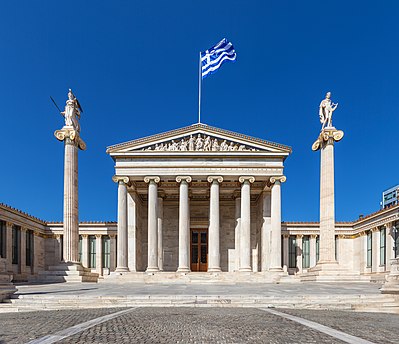Introduction
The European Union (EU) is a supranational political and economic union of 27 member states that are located primarily in Europe. The Union has a total area of 4,233,255 km2 (1,634,469 sq mi) and an estimated total population of over 448 million. The EU has often been described as a sui generis political entity (without precedent or comparison) combining the characteristics of both a federation and a confederation. Containing 5.8% of the world population in 2020, EU member states generated a nominal gross domestic product (GDP) of around US$16.6 trillion in 2022, constituting approximately one sixth of global nominal GDP. Additionally, all EU states except Bulgaria have a very high Human Development Index according to the United Nations Development Programme. Its cornerstone, the Customs Union, paved the way to establishing an internal single market based on standardised legal framework and legislation that applies in all member states in those matters, and only those matters, where the states have agreed to act as one. EU policies aim to ensure the free movement of people, goods, services and capital within the internal market; enact legislation in justice and home affairs; and maintain common policies on trade, agriculture, fisheries and regional development. Passport controls have been abolished for travel within the Schengen Area. The eurozone is a group composed of the 20 EU member states that have fully implemented the economic and monetary union and use the euro currency. Through the Common Foreign and Security Policy, the union has developed a role in external relations and defence. It maintains permanent diplomatic missions throughout the world and represents itself at the United Nations, the World Trade Organization, the G7 and the G20. Due to its global influence, the European Union has been described by some scholars as an emerging superpower. In 2012, the EU was awarded the Nobel Peace Prize. The United Kingdom became the only member state to leave the EU, in 2020; ten countries are aspiring or negotiating to join it. (Full article...) Selected article The 1985 Schengen Agreement is an agreement among European states which allows for the abolition of systematic border controls between the participating countries. It also includes provisions on common policy on the temporary entry of persons, the harmonisation of external border controls and cross-border police co-operation. A total of 30 countries – including all European Union states and three non-EU members Iceland, Norway, and Switzerland – have signed the agreement and 26 have implemented it so far. The Republic of Ireland and the United Kingdom only take part in the police co-operation measures and not the common border control and visa provisions. Border posts and checks have been removed between Schengen countries and a common 'Schengen visa' allows tourist or visitor access to the area. The agreement was originally signed on 14 June 1985, by five European countries (Belgium, France, Germany, Luxembourg, and the Netherlands). It was signed aboard the ship Princesse Marie-Astrid on the Moselle River, near Schengen, a small town in Luxembourg on the border with France and Germany. Selected picturePhotograph credit: Thomas Wolf The Academy of Athens is Greece's national academy and the highest research establishment in the country. Established on 18 March 1926, it operates under the supervision of the Ministry of Education and Religious Affairs.
This picture shows the main building of the Academy, a neoclassical building between Panepistimiou Street and Akadimias Street in the centre of Athens and one of the city's major landmarks. The building was designed as part of an architectural "trilogy" in 1859 by Danish architect Theophil Hansen, along with the University and the National Library. The Greek neoclassical sculptor Leonidas Drosis sculpted the principal multi-figure pediment sculpture, on the theme of the birth of Athena, based on a design by painter Carl Rahl. Two columns on either side of the portico feature statues of Athena on the left and Apollo on the right, also designed by Drosis.
Did you know?...that within the Eurozone the European Central Bank has the exclusive authority to set monetary policy? ...that Greenland and United Kingdom are the only countries to ever leave the European Union? Selected cityRiga, the capital of Latvia, is situated on the Baltic Sea coast on the mouth of the River Daugava, at 56°58′N 24°8′E / 56.967°N 24.133°E. Riga is the largest city in the Baltic states. The Historic Centre of Riga has been declared a UNESCO World Heritage Site, and the city is particularly notable for its extensive Art Nouveau (Jugendstil) architecture, comparable in significance only with Vienna, Saint Petersburg and Barcelona. The modern founding of Riga is regarded by historians to have begun with the arrival in Latvia of German traders, mercenaries and religious crusaders in the second half of the 12th century, attracted by a sparsely populated region, potential new markets and by the missionary opportunities to convert the local population to Christianity. German merchants established an outpost for trading with the Balts near the Liv settlement at Riga in 1158. The Augustinian monk Meinhard built a monastery there circa 1190. General imagesThe following are images from various European Union-related articles on Wikipedia.
TopicsFeatured contentFeatured articles
Featured lists
Featured contentGood articles
CategoriesRelated portalsAssociated WikimediaThe following Wikimedia Foundation sister projects provide more on this subject:
Discover Wikipedia using portals |

































































